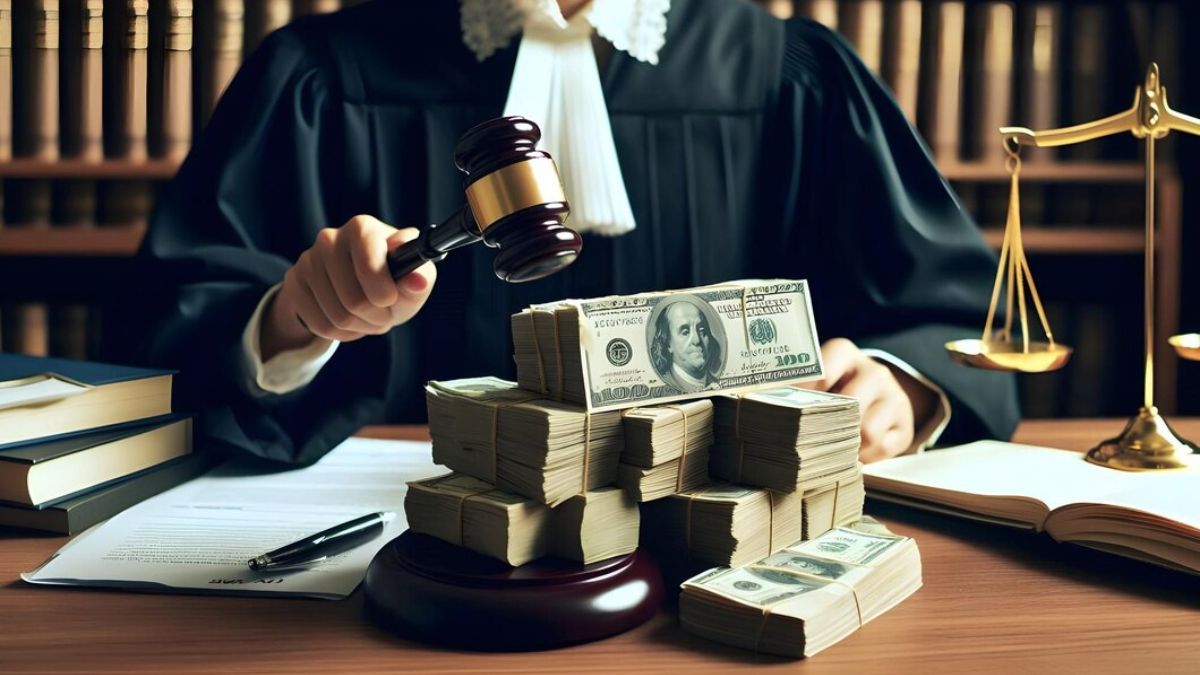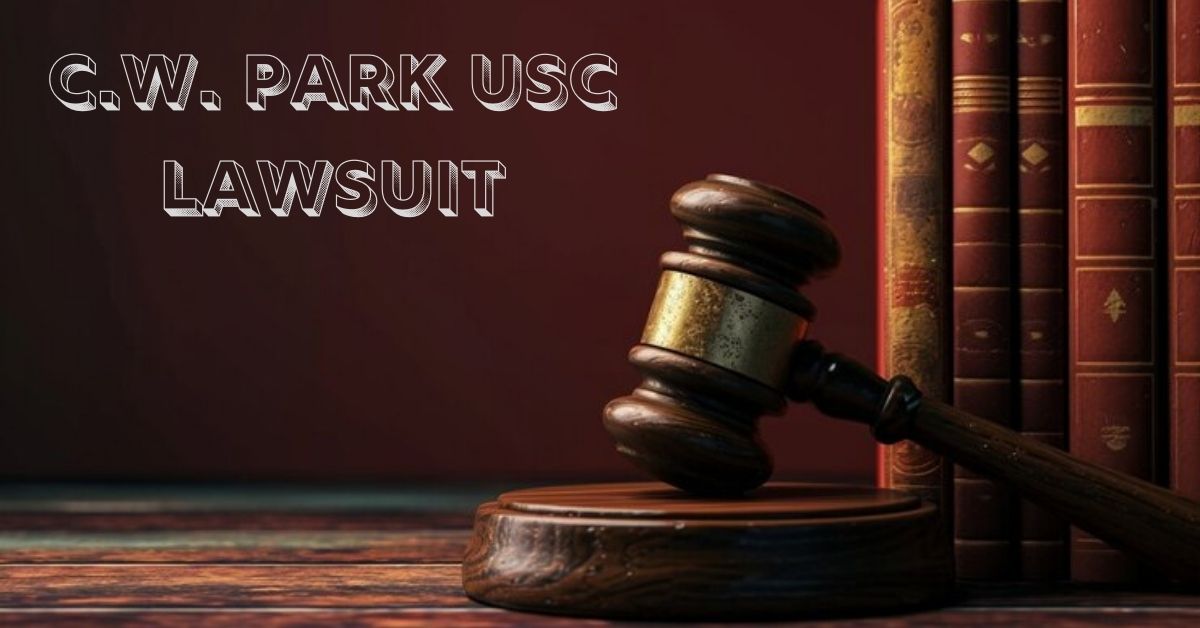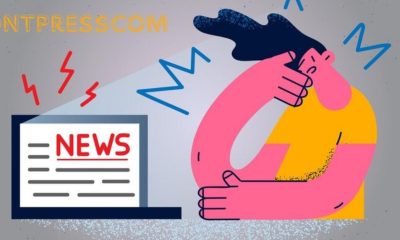LAW
Unpacking the 72 Sold Lawsuit: What You Need to Know

The world of real estate can be as thrilling as it is unpredictable. Recently, one company has found itself at the center of controversy: 72 Sold. As news spreads about the ongoing lawsuit against them, many are left wondering what it means for their operations and clients. If you’re looking to buy or sell a home, understanding this situation is crucial. What led to these legal troubles? How might they affect stakeholders? Join us as we unpack the intricacies of the 72 Sold lawsuit and explore its broader implications in the housing market.
Background on the Company and the Lawsuit
72 Sold, a real estate company, gained attention for its unconventional approach to selling homes. Founded to simplify transactions, it promised sellers fast sales and higher returns. This model attracted many homeowners looking for a new way to navigate the often complex housing market.
However, recent developments have cast a shadow over the company’s reputation. The lawsuit emerged as former clients raised concerns about transparency and practices during their home-selling processes. Allegations suggest that not all promises made were fulfilled.
This situation has sparked discussions within the real estate community. It raises critical questions regarding business ethics in an industry where trust is paramount. As more details unfold, both customers and investors are closely monitoring how this will impact 72 Sold’s future operations and credibility in the marketplace.
Allegations against 72 Sold
The 72 Sold lawsuit brings serious allegations to light. Critics claim the company misrepresented key aspects of its home-selling process. They argue that marketing materials were misleading, leading customers to believe they’d receive higher offers than what was realistically possible.
Another point of contention centers around fees. Some former clients assert that unexpected charges cropped up, leaving them frustrated and out of pocket. Transparency in financial dealings is a core expectation in real estate transactions, and these claims challenge that principle.
Additionally, there are accusations concerning customer service practices. Reports suggest that communication breakdowns left sellers feeling neglected during crucial selling phases. These issues have raised concerns about whether the business model prioritizes profit over client satisfaction.
As the legal proceedings unfold, more details may emerge regarding these troubling allegations against 72 Sold.
Impact on Customers and Investors
The 72 Sold lawsuit has raised concerns among its customers and investors. Many homeowners who engaged with the company now face uncertainty regarding their transactions. Trust is crucial in real estate, and this situation has shaken that foundation.
Investors are also feeling the effects of the lawsuit. Their confidence may waver as they consider the potential financial repercussions for the business. The stock’s volatility could reflect a hesitant market response to ongoing legal issues.
Customers worry about their investments in selling properties quickly and efficiently. Questions surrounding fees, service quality, and overall transparency have emerged. This scrutiny can lead to hesitance from potential clients considering similar services.
The emotional toll on both parties cannot be underestimated either. Anxiety over lost opportunities or funds can weigh heavily on individuals looking for solutions during a challenging housing landscape.
Response from 72 Sold and Legal Proceedings
72 Sold has responded to the allegations with a firm stance. The company asserts that it operates transparently and adheres to all legal guidelines in its business practices.
In their official statements, representatives have emphasized their commitment to customer satisfaction. They argue that the claims are unfounded and misrepresent their services.
Legal proceedings have commenced, involving both civil actions and potential regulatory scrutiny. 72 Sold’s team is actively working with legal experts to address these challenges head-on.
The company’s leadership remains optimistic about resolving this matter swiftly. They believe that a thorough examination will vindicate their operations and restore trust among clients and investors alike.
Lessons Learned from the Lawsuit
The 72 Sold lawsuit serves as a reminder of the complexities involved in real estate transactions. It highlights the importance of transparency and clear communication between companies and their clients.
Businesses must prioritize ethical practices to maintain trust and credibility. When financial stakes are high, even minor oversights can lead to significant legal repercussions.
For consumers, this case underscores the necessity of performing due diligence before engaging with any service provider. Researching reviews, seeking referrals, and understanding contracts are crucial steps for safeguarding interests.
Investors should also take note. Monitoring legal challenges faced by companies can offer insights into potential risks associated with investment decisions. A proactive approach to these issues often pays off in the long run.
Every setback offers an opportunity for growth and improvement within the industry.
Conclusion: What We Can Take Away from This Situation
The situation surrounding the 72 Sold lawsuit serves as a significant reminder for consumers and investors alike. It highlights the importance of due diligence before engaging with any company, especially in industries where trust and transparency are paramount. The allegations raised against 72 Sold underscore how critical it is to understand business practices thoroughly.
For customers looking to sell their homes quickly, this case showcases the necessity of evaluating all options carefully and seeking out credible alternatives. Investors must also remain vigilant in assessing companies’ reputations, ensuring they align with ethical standards.
This incident will likely influence how real estate businesses operate moving forward. Companies may be compelled to adopt more transparent practices to maintain customer confidence and investor support.
Learning from such events can empower individuals making informed decisions while navigating complex markets like real estate.
LAW
How to Choose the Right Legal Representation for Your Appeal

When confronting an appeal in a court of law, choosing the right legal representation can be the distinction between a positive outcome and a drawn out legal fight. A lot is on the line, and your choice of attorney will essentially impact the success of your appeal. This article will direct you through the vital contemplations for choosing the best post-conviction lawyers in Florida to effectively deal with your appeal.
Understanding the Appeal Process
Before digging into the choice process, it’s vital to understand what an appeal involves. An appeal isn’t a retrial yet a legal process where you challenge the choices made by a lower court. This includes reviewing the trial record, distinguishing legal errors, and introducing arguments to a higher court.
When choosing the right legal representation for your appeal, it’s crucial to consider their expertise in handling complex legal issues specific to your case. If your appeal involves elements such as evidence related to crime scene decontamination, ensure your attorney has experience with expert crime scene decontamination in Tulsa, OK. This specialized knowledge can be vital in understanding the nuances of your case and strengthening your legal arguments.
Consequently, your lawyer’s role is to examine the past trial completely and argue compellingly for why the choice ought to be upset or changed.
Expertise in Post-Conviction Law
When searching for post-conviction lawyers in Florida, expertise in appellate law is the main thing to look for. Appellate practice contrasts altogether from trial practice; it includes broad legal research, composing, and oral arguments before appellate appointed authorities.
Look for attorneys who have practical experience in appellate work as opposed to general criminal protection. Specific information and involvement with post-conviction law ensure that your lawyer is knowledgeable in the subtleties of appealing a case.
Experience and Track Record
Experience plays a significant role in choosing the right legal representation. Review the lawyer’s track record in taking care of appeals, especially in comparative cases. An attorney with a demonstrated history of successful appeals is bound to effectively explore the complexities of your case.
In Florida, where legal practices can differ, finding post-conviction lawyers who have a background marked by successful appeals in neighborhood courts can be especially gainful.
Reputation and Reviews
The reputation of a lawyer or law firm can give important understanding into their capacities. Look for reviews and tributes from previous clients and associates. Positive feedback from the people who have had to deal with the appeal process can assist with checking the lawyer’s dependability and viability. Additionally, consider seeking proposals from trusted sources, for example, other legal professionals or advocacy gatherings.
Communication Skills
Powerful communication is a foundation of successful legal representation. Your lawyer ought to have the option to make sense of complex legal ideas such that you can understand. They ought to likewise be receptive to your various forms of feedback, keeping you educated about the advancement regarding your case.
During your underlying conferences, survey their capacity to explain legal techniques and their approach to tending to your particular requirements.
Strategic Approach
A superb appellate lawyer will foster a strategic approach custom-made to your case. They ought to have the option to distinguish the central points of interest to move and art influential arguments to introduce before the appellate court.
This includes intensive preparation, including reviewing the trial record, researching legal precedents, and planning detailed briefs. A thoroughly examined system improves the probability of a successful appeal.
Understanding Fees and Costs
Legal representation for appeals can be expensive, so it’s fundamental to understand the fee structure before committing. Post-conviction lawyers in Florida might offer different charging courses of action, like level fees or hourly rates.
Ensure that you have an unmistakable understanding of the costs in question and any additional costs that could emerge. Straightforwardness about fees and costs will assist you with settling on an educated choice and keep away from surprising monetary weights.
Availability and Accessibility
The availability of your lawyer is another significant thought. Your lawyer ought to have the opportunity and assets to give to your appeal. A bustling attorney with numerous cases probably won’t give the degree of consideration your case requires. Evaluate the association’s assets and responsibility to ensure they can deal with your appeal productively and fulfill time constraints.
Compatibility and Trust
Finally, choose a lawyer with whom you feel great and sure. A solid attorney-client relationship in light of trust and common regard is fundamental for compelling legal representation. You ought to feel quiet examining delicate insights regarding your case and sure about the lawyer’s obligation to accomplishing the best conceivable outcome.
Final Word
In conclusion, choosing the right legal representation for an appeal is a basic choice that can significantly impact the outcome of your case. When looking for post-conviction lawyers in Florida, think about their expertise in appellate law, experience, reputation, communication skills, and strategic approach.
Brownstone Appeal Lawyers stand apart as a head choice for those seeking uncommon representation in appeal cases. Their demonstrated track record and obligation to client success make them an important partner in exploring the complexities of the appellate process. Choose shrewdly and ensure that your legal representation is prepared to give the best chance of a successful appeal.
LAW
From Contract Disputes to Small Claims: Solutions for Common Legal Challenges

Understanding Common Legal Challenges
Legal challenges can arise unexpectedly, affecting individuals and businesses alike. Whether you’re dealing with family disputes, business disagreements, or criminal accusations, it’s crucial to understand the nature of these problems to resolve them effectively. Website https://reese.legal/ can provide valuable information on navigating various legal issues, offering guidance on approaching these difficulties and eventually overcoming them. Legal challenges can be overwhelming, but they can be managed successfully with the proper knowledge and support. This guide aims to illuminate some common legal challenges and offer strategies for overcoming them. By understanding the intricacies of family law disputes, business legal issues, criminal law concerns, and personal injury cases, you’ll be better prepared to tackle these challenges head-on.
Navigating Family Law Disputes
Family law disputes are often emotionally charged and complicated. Understanding the legal landscape is essential when facing a divorce, child custody battle, or alimony dispute. For instance, child custody cases frequently hinge on factors such as the child’s best interest, the parent’s ability to provide care, and more. Divorce proceedings can be particularly stressful as they involve dividing assets and liabilities, determining spousal support, and sometimes even restraining orders. Child custody and visitation rights add another layer of complexity. Courts typically focus on what is best for the child, involving factors like the child’s age, health, emotional ties with parents, and the ability of each parent to care for the child.
Critical Elements in Family Law Disputes
- Divorce proceedings and property division
- Child custody and visitation rights
- Alimony and spousal support
Each element requires careful consideration and legal expertise to navigate effectively. Engaging an experienced family law attorney from Reese Legal Firm can significantly affect the outcome of such disputes.
Handling Business Legal Issues
Businesses encounter numerous legal challenges, such as contract disputes, intellectual property issues, and compliance concerns. Effective legal strategies are essential for maintaining smooth operations. Intellectual property protection and contract management can significantly help avoid litigation and foster growth. Contract disputes frequently occur in business due to misunderstandings, miscommunications, or breaches. It’s crucial to have well-drafted contracts and to understand the terms thoroughly. Intellectual property protection is another critical area, especially for businesses involved in innovation and design. Protecting your intellectual property can prevent competitors from stealing your ideas and give you a competitive edge in the market.
Common Business Legal Challenges
- Contract disputes
- Intellectual property protection
- Regulatory compliance
By addressing these issues proactively, businesses can mitigate risks and focus on growth and innovation. Ensuring regulatory compliance involves staying updated on laws and regulations related to your industry and implementing best practices to avoid legal pitfalls.
Addressing Criminal Law Concerns
Being accused of a crime is a serious matter that can impact your life and freedom. Knowing your rights and seeking skilled legal representation are crucial to ensuring a fair trial and defense strategy. The more informed you are about your case and the legal procedures involved, the better your chances of achieving a favorable outcome.
Criminal charges vary from minor infractions like traffic violations to serious felonies like assault or theft. Each type of charge requires a different legal approach and a thorough understanding of the law. Skilled attorneys who focus on criminal defense can help you understand the intricacies of your case, offering advice on the charges, possible defenses, and outcomes if found guilty.
Dealing with Personal Injury Cases
Cases of personal injury frequently contain intricate legal and medical information. Whether you’ve been in a car accident or injured at work, understanding the process—from gathering evidence to negotiating settlements—can help you achieve fair compensation for your losses. It includes accounting for medical expenses, lost wages, and emotional distress.
Gathering evidence is a crucial first step in any personal injury case. It includes obtaining medical records, accident reports, and witness statements. Filing a claim involves notifying the responsible party and their insurance company. Negotiating a settlement or going to trial requires a deep understanding of the legal process and the ability to present a compelling case.
Steps in Personal Injury Cases
- Gathering evidence and documentation
- Filing a claim
- Negotiating settlements or going to trial
Every step necessitates careful focus on specifics to guarantee a positive result. Employing a personal injury lawyer can assist in maneuvering through the complexities and improving the chances of getting fair compensation.
Tips for Choosing the Right Legal Representation
Having the correct legal counsel can significantly affect the outcome of your legal matters. Consider their experience, expertise, and client review when choosing an attorney. A good lawyer understands the law and keeps your best interests in mind. Experience in relevant legal areas is crucial as it ensures the lawyer is well-versed in handling cases similar to yours. Client feedback and testimonials offer a glimpse into the lawyer’s performance and client contentment. Availability and communication skills are also important factors, as you need a lawyer who is accessible and can effectively communicate complex legal concepts.
Factors to Consider
- Experience in relevant legal areas
- Client testimonials and reviews
- Availability and communication skills
Taking the time to choose the proper legal representation can significantly impact resolving your legal issues. It’s advisable to consult multiple attorneys before finding one who aligns with your needs and expectations.
Staying Informed and Prepared
An informed and prepared approach to legal challenges can alleviate stress and improve outcomes. Regularly consult legal professionals and stay updated on legal trends to navigate your circumstances effectively. Maintaining a proactive approach helps manage current issues and prevents future legal mishaps. Numerous methods are available to keep up-to-date on the latest legal trends and updates, such as signing up for legal newsletters and participating in seminars and workshops. Consulting with legal professionals regularly can also provide valuable insights and guidance, helping you prepare for any potential legal challenges.
LAW
Unpacking the C.W. Park USC Lawsuit: Key Takeaways and Implications

In recent months, the c.w. park usc lawsuit has become a hot topic of discussion, igniting debates across campus and beyond. The case touches on significant issues that go far beyond legalities; it raises questions about ethics, accountability, and the very fabric of university life. As details emerge, students, faculty members, and even alumni find themselves analyzing its implications closely.
What started as a seemingly isolated incident has turned into a pivotal moment for the University of Southern California community. With various stakeholders invested in the outcome, understanding this lawsuit is imperative not only for those directly involved but also for anyone concerned about institutional integrity in higher education. Let’s delve deeper into what this lawsuit entails and explore its potential impact on all parties involved.
The CW. Park USC lawsuit has surfaced as a critical issue that warrants attention from all corners of the university community. At its core, the allegations challenge established norms and practices within the institution. This case not only highlights potential misconduct but also sheds light on systemic issues that may have been overlooked for years.
One key takeaway is how this lawsuit serves as a catalyst for conversations about transparency and accountability in higher education. Many are questioning whether existing policies adequately protect students and faculty alike.
Moreover, the impact extends beyond just legal ramifications; it raises awareness about ethical standards at universities. As more details unfold, stakeholders are left grappling with what these revelations mean for their trust in academic institutions.
Public perception plays an essential role in shaping narratives around such lawsuits. The community’s response could influence future policy changes and reforms aimed at preventing similar situations from occurring again.
The Allegations Against C.W. Park USC Lawsuit
The C.W. Park USC lawsuit has surfaced amidst serious allegations that have caught the attention of many. At its core, these accusations revolve around claims of misconduct and mismanagement within the university setting. This situation raises eyebrows about how institutional protocols were followed, or rather not followed.
Several parties have come forward with testimonies suggesting a pattern of neglect regarding student welfare and faculty support. Allegations include inadequate handling of complaints and an environment that appears to dismiss critical issues raised by students and staff alike.
Moreover, there are whispers surrounding potential financial improprieties linked to resource allocation for programs meant to benefit students directly. Such implications challenge the integrity of those in leadership positions at USC.
These allegations paint a troubling picture for the institution’s reputation. Stakeholders are now left grappling with questions about accountability and transparency amid growing public scrutiny.
Implications for the C.W. Park USC Lawsuit
The C.W. Park USC lawsuit carries significant implications that extend beyond the immediate legal concerns. For one, it raises questions about institutional accountability and the adherence to ethical standards within academic settings. Stakeholders are closely watching how the university responds to these allegations.
This case could set a precedent for future lawsuits involving universities and their governance practices. If findings reveal negligence or misconduct, other institutions may face similar scrutiny, prompting reforms in policies related to faculty conduct and student welfare.
Moreover, this situation can impact funding opportunities for USC. Potential donors and sponsors may reconsider their affiliation with an institution embroiled in controversy, affecting financial stability and growth initiatives.
Students might experience shifts in campus culture as discussions surrounding ethics become more prevalent. This scenario could lead to increased awareness among students regarding their rights and responsibilities within the university system while fostering a dialogue about transparency and integrity on campus.
Impact on Students and Faculty C.W. Park USC Lawsuit
The C.W. Park USC lawsuit has stirred significant concern among students and faculty alike. Many have expressed anxiety over how this legal battle could disrupt campus life, academic programs, and the overall reputation of the university.
Students are particularly worried about potential changes to their educational experience. Questions arise about whether resources will be diverted to manage the lawsuit instead of enhancing student services or facilities. The uncertainty can cast a shadow over academic pursuits.
Faculty members also feel the impact acutely. There’s apprehension regarding job security and institutional stability during this turbulent time. Faculty may find it challenging to focus on research and teaching while navigating these unexpected developments.
Furthermore, morale could suffer as community trust wavers amid ongoing litigation. The need for transparency from administration becomes essential in fostering a supportive environment where students and faculty can thrive despite external pressures related to the C.W. Park USC lawsuit.
Legal Ramifications and Potential Outcomes
The C.W. Park USC lawsuit carries various legal ramifications that could reshape institutional policies and governance at the University of Southern California. As the case unfolds, it has already attracted attention from legal experts who are closely monitoring proposed changes to university regulations.
If the allegations prove valid, USC may face significant financial penalties or mandates for reforming their operational procedures. Such outcomes might compel universities nationwide to scrutinize their own practices more carefully, ensuring compliance with academic integrity standards.
Moreover, potential settlements could lead to increased transparency in how complaints are handled within educational institutions. This shift would signal a new era where student voices hold greater weight against administrative decisions.
With court rulings potentially setting precedents, other lawsuits involving similar claims might emerge across different campuses. The landscape of higher education could transform as these judicial outcomes redefine accountability measures within academic environments.
Responses from c.w. park usc lawsuit, and the Public
Responses to the C.W. Park USC lawsuit have varied widely, reflecting diverse perspectives from different stakeholders. The university administration has emphasized its commitment to transparency and adherence to ethical standards throughout this process. They aim to reassure students and faculty that their concerns are taken seriously.
On the other hand, students have expressed a mix of concern and frustration. Many feel unsettled by the allegations and worry about potential repercussions on their academic environment. Social media platforms buzz with discussions as they share opinions and experiences related to the case.
Faculty members are also weighing in, some voicing support for Park while others call for rigorous investigations into the claims made against him. This division underscores a broader debate within academic circles about accountability versus due process.
Public opinion is equally divided; various advocacy groups rally behind both sides of the argument, calling attention to issues like institutional integrity or personal rights as these discussions unfold online and offline. The community remains engaged in understanding what this lawsuit could mean for all involved parties.
The Importance of c.w. park usc lawsuit
The C.W. Park USC lawsuit holds significant weight in the landscape of higher education and institutional accountability. It raises essential questions about ethics, governance, and the responsibility universities have towards their students and faculty.
As it unfolds, this case shines a light on practices that may need reform within academic institutions. Transparency is crucial in maintaining trust between educational bodies and those they serve.
Moreover, the lawsuit could establish critical precedents for how similar cases are approached in the future. The implications can extend beyond just one institution, influencing policies at universities nationwide.
For students and faculty members alike, understanding its importance fosters greater awareness of their rights within an academic setting. This case serves as a reminder that every voice matters when advocating for justice within educational environments.
Conclusion
The c.w. park usc lawsuit has certainly sparked a significant conversation within the academic community. Its implications stretch far beyond the courtroom, touching on issues of ethics, accountability, and institutional integrity. As more details emerge, stakeholders are left grappling with complex questions about governance and responsibility.
Students and faculty alike find themselves in a precarious position as they navigate these challenges. The atmosphere at USC is charged with uncertainty and concern for what this means for their future. The outcomes could reshape various policies that touch upon student welfare and faculty rights.
Public interest remains high as media coverage continues to unfold around this case. People are eager to understand not just the legal ramifications but also how it might influence similar institutions nationwide.
As discussions continue, one thing is clear: the C.W. Park USC lawsuit serves as a pivotal moment in higher education discourse that will likely resonate for years to come.
FAQs
What are the main allegations in the C.W. Park USC lawsuit?
The lawsuit primarily revolves around claims of misconduct and violations of university policies.
How might this affect current students at USC?
Students may face uncertainty regarding their academic environment as the legal proceedings unfold.
Are there any implications for faculty members involved in the C.W. Park USC lawsuit?
Yes, faculty members could experience shifts in job security or changes to their roles depending on how the case progresses.
What legal ramifications could arise from this situation?
Possible outcomes include financial penalties for those found liable or even institutional reforms at USC.
How has c.w. park usc lawsuit responded to these allegations?
C.W. Park maintains a stance of innocence and is prepared to contest all claims made against him vigorously.
Why is this lawsuit important for higher education institutions?
This case highlights critical issues regarding accountability and ethical behavior within academic settings.
-

 NEWS9 months ago
NEWS9 months agoTsumino-Blog.com: A Hub for Manga and Doujinshi Enthusiasts
-

 CRYPTO9 months ago
CRYPTO9 months agoHow Crypto30x.com Zeus is Revolutionizing Cryptocurrency Trading
-

 ENTERTAINMENT11 months ago
ENTERTAINMENT11 months agoSimplify Your System with Plugbox Linux: A Lightweight Arch-Based Distro
-

 TECHNOLOGY9 months ago
TECHNOLOGY9 months agoVy6ys: Exploring the Latest Breakthrough in Tech Innovation
-

 NEWS9 months ago
NEWS9 months agoDiscover Ontpresscom: Redefining Online Publishing
-

 HOME10 months ago
HOME10 months agoThe Ultimate Basement Renovation Checklist: Steps to Follow
-

 ENTERTAINMENT9 months ago
ENTERTAINMENT9 months agoPirlo TV: The Ultimate Guide to Free Online Sports Streaming
-

 NEWS9 months ago
NEWS9 months agoontpresscom general updates
